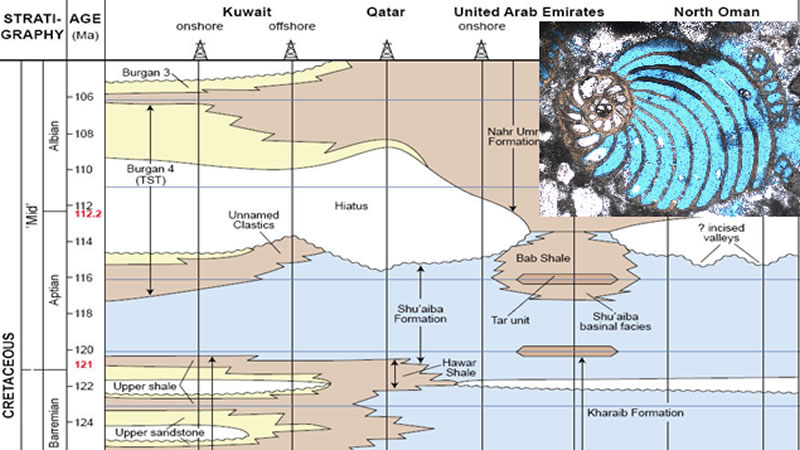
The NERC CDT training programme comprises 20 weeks of training, 16 of which are mandatory training for all students and 4 weeks comprise optional modules. The overall aim of the training program is to give students the opportunity to take advanced level courses applicable to their area of research, and to widen their knowledge and skills-set by undertaking courses outwith their specific topic or even discipline.
The first optional module made available to the CDT 2014 cohort, entitled “Biostratigraphy & Carbonate Sequence Stratigraphy”, was attended by just over half of the students. This highly successful course was taught by Dr Mike Simmons from Halliburton and Dr Mike Bidgood from GSS International, who provided the students with an array of data and material, enabling the teaching to be largely exercise-based and a hands-on practical experience.
One of the CDT students commented in the feedback survey that, “the course was highly technical and taught such that all members of the group could follow and understand the content. The inclusion of multiple practicals which occupied most of our time aided in consolidating learning and how to actually use biostratigraphy practically. It was also explained within the wider context of its use within the petroleum industry both in exploration for correlation purposes and further how it is used in drilling – which is something I formerly did not appreciate its use in”.
We are delighted to be able to offer optional modules to the CDT students, some created especially for the CDT but many others run commercially or by CDT partner organisations and staff, to allow an element of customisation of the individual training programme with students deciding whether or not to access further geological fieldwork, software-specific training courses or advanced niche subject areas for example. We extend our thanks to Halliburton and their staff for getting the CDT Training Academy optional programme off to such a great start and we welcome offers from other potential course leaders willing to contribute to the training schedule in this way.
